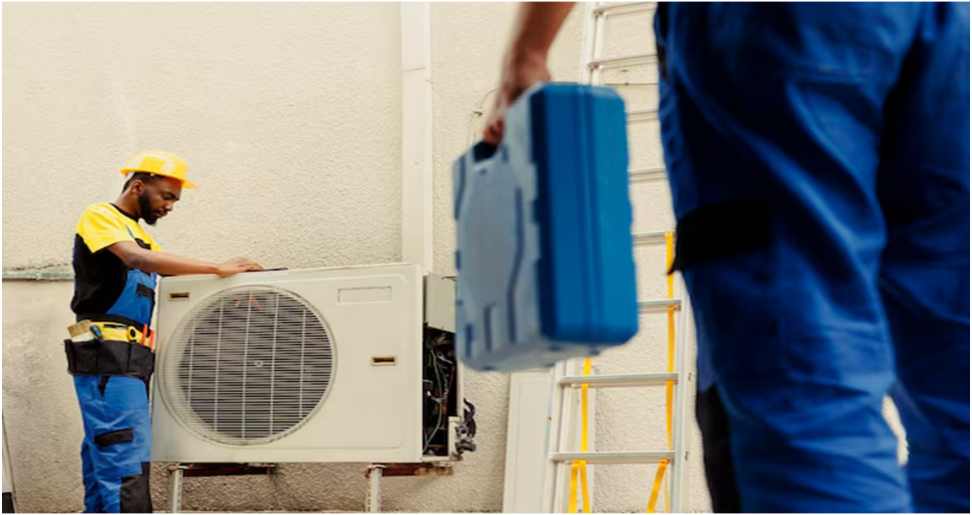As summer approaches, a reliable air conditioning (AC) system becomes paramount for a cool and comfortable home. But even the most dependable AC units won’t last forever. Here’s how to identify the warning signs that your AC system is nearing the end of its lifespan and might be due for replacement.
When Repairs Aren’t Enough
While regular maintenance and ac repair can extend the life of your AC unit, some signs indicate it’s time to consider a replacement:
- Age and Inefficiency: AC units typically have a lifespan of 10-15 years. If your unit is also approaching for exceeding this age and experiencing frequent breakdowns or declining efficiency, replacement might be the most cost-effective solution in the long run.
- Frequent Breakdowns: Constantly needing repairs is a clear sign that your AC unit is struggling to keep up. Replacing it can save you money on recurring repair costs and prevent the stress of unexpected breakdowns during peak summer months.
- Skyrocketing Energy Bills: If your energy bills are inexplicably rising, it could be due to a declining efficiency in your aging AC unit. A new, energy-efficient model can significantly reduce your energy consumption and translate to lower energy costs.
- Uneven Cooling: If anyone from rooms in your home is noticeably cooling or warming than others, it might indicate airflow issues or a failing compressor. Replacing the entire system can ensure consistent cooling throughout your home.
- Strange Noises: Unusual grinding, squealing, or clanging noises are cause for concern. While some noises might be repairable, persistent loud noises could indicate significant internal damage requiring a complete system replacement.
Considering the Bigger Picture
Beyond the telltale signs, here are some additional factors to consider when deciding on AC replacement:
- Refrigerant Type: If your AC unit uses R-22 refrigerant, production is being phased out due to environmental concerns. Replacing your unit now can avoid future challenges finding compatible refrigerant for repairs.
- System Size and Capacity: If your AC unit struggles to cool your home effectively, even after maintenance, it might be undersized for your space. Replacing it with a system with the appropriate capacity ensures efficient cooling.
- Technological Advancements: Newer AC models offer superior efficiency, quieter operation, and potentially smart features for remote control and monitoring. Upgrading can enhance your comfort and potentially lower your energy costs.
The Importance of Professional Evaluation
If you suspect your AC system might be nearing replacement, don’t hesitate to consult a qualified HVAC technician. Here’s how they can assist you:
- Professional Diagnosis: A technician can diagnose the root cause of any issues you’re experiencing and determine if repair or replacement is the most suitable solution.
- Replacement Recommendations: Based on your specific needs and budget, an HVAC professional can recommend an AC system that’s the right size and efficiency for your home.
- AC Installation Expertise: When replacement is necessary, a qualified technician ensures proper AC install, maximizing the efficiency and lifespan of your new system.
Conclusion
Replacing your AC system might seem like a significant investment, but it can be a wise decision in the long run. By recognizing the signs and considering the benefits, you can make an informed decision about replacing your AC system. Investing in a new unit can ensure a cool, comfortable, and energy-efficient home for years to come. So, embrace the upgrade and enjoy a summer season free from worries about your AC system!
Read Also:
- Is Super Travel Legit?
- Things To Do In Manhattan
- Things To Do In Orange County
- What Terminal Is American Airlines At Lax?

